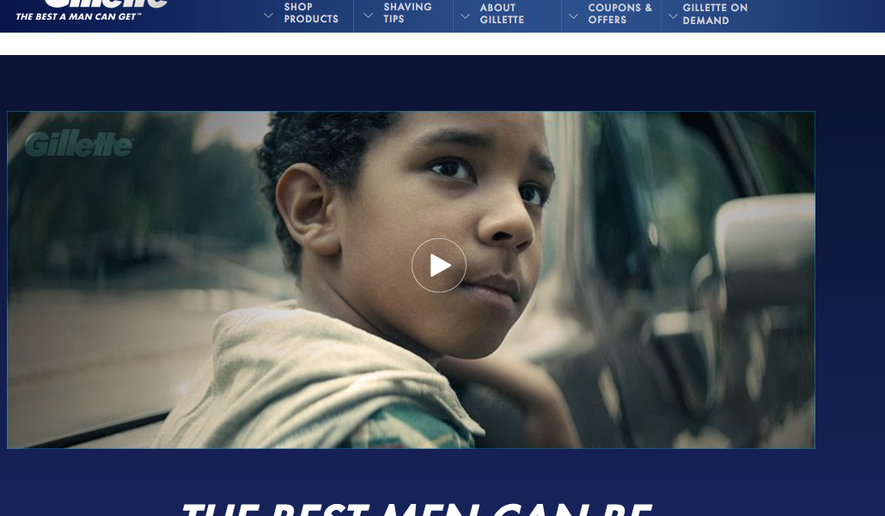Corporate Advertisements: Politics over Product
Gillette’s ad aimed to address toxic masculinity faces backlash and controversy (photo courtesy of Washington Times)
March 5, 2019
Gillette, a company of Procter and Gamble, released an advertisement that became incredibly controversial. Unlike conventional marketing, Gillette’s advertisement carried an incredibly potent political message.
The advertisement starts by demonstrating the ways men can be abusive or exhibit “toxic masculinity.” Then as the video progresses, the advertisement shifts from criticism of men as abusive to crediting the #metoo movement as encouraging men to take more action against toxic masculinity by stopping bullying and catcalling or other forms of abuse against men and women alike.
Regardless of whether or not the portrayal of men as generally abusive until the #metoo movement came along is accurate, corporations should abstain from making inflammatory advertisement as part of a private agenda motivated by financial acquisition. While I appreciate the message that people, especially men, could strive more to prevent bullying and sexual abuses, the simple truth is that advertisements like these exploit an already divided political arena. This sort of divisive advertisement is simply a marketing ploy to garner more attention by stirring political controversy and social outrage.
Procter and Gamble only cares about the actions of men so far as those actions equate to the purchase of their products. I doubt they sincerely believe that through a two minute commercial, they have the ability to influence and dictate the actions of individuals. Even if they were foolish enough to have such unearned confidence that they can actually influence the social fabric, their actions did nothing but stir outrage and controversy, which was their true purpose of such advertisements.
If these corporations truly believed in the #metoo movement, there are much more pragmatic measures to take before employing a general blanket statement that men were inherently evil until the #metoo movement came along. Donations or even simply official public endorsements of leading figures would have more practical effect than their advertisement. However, morality was never the root of these advertisements, but rather they were simply appealing to the increasingly politically correct culture. The advertisements are simply superfluous moral posturing inadequately camouflaging marketing schemes to draw attention to their product in hopes of bolstering their sales.
In today’s political climate, where political controversies only serve to widen the divide between left and right, this sort of disingenuous display of morality that only widens the schism is dangerous and irresponsible.






































